The plant-based movement is everywhere—Instagram feeds, celebrity cookbooks, bustling Brighton cafes. More people than ever are ditching animal products, but there’s a nagging question that keeps coming up: what nutrients are vegans really missing out on? There’s plenty of online chatter, some half-baked myths, and even the odd horror story about fainting at the gym. But the actual answer is messier—and more interesting—than most people think. Modern veganism isn’t just about tofu and kale; it’s about balancing taste, convenience, and health. And if you’re running on oat lattes and imagination, you might wake up one day wondering why your energy is gone or your nails look like autumn leaves. Let’s zero in on the science, the real-life stats, and the kitchen hacks that separate the thriving vegans from the ones stuck on the sofa, feeling completely knackered.
The Nutrients Vegans Struggle With Most
First up, what’s all the fuss about? When someone switches to a vegan diet, they instantly drop a bunch of animal-based nutrients, and, depending on how clued up they are, not all of those get replaced with plant-based alternatives. The spotlight nutrients—those most likely to go missing—aren’t just pulled out of thin air. Doctors, researchers, and public health groups have been tracking this for decades, especially as the trend for plant-based eating keeps growing. The usual suspects on the vegan watch-list are Vitamin B12, iron, omega-3 fatty acids—particularly EPA and DHA—calcium, zinc, iodine, and sometimes Vitamin D. Each of these has a different story, some causing quiet issues for years unless you know what to look for.
Vitamin B12 is the kingpin here. It plays a starring role in nerve function and making red blood cells. Animal foods are the main source, so vegan diets are often completely B12 free, unless fortified products or supplements are added. The British Dietetic Association and NHS both agree that B12 deficiency is much more common among vegans. The twist: symptoms—like tiredness, mood swings, or memory slips—can sneak up over several years without you ever realizing it. And, for growing teens or pregnant women, missing B12 can mean big trouble.
Then there’s iron, the one everyone loves to worry about. Animal iron (heme iron) is easier for our bodies to absorb than the plant version (non-heme iron). While spinach is famous because of a decimal point error in an old study, you’d actually need to eat a wheelbarrow of it to meet your daily iron needs. Vegans do get plenty from lentils, chickpeas, and even dark chocolate, but it’s absorbed less efficiently. According to the National Diet and Nutrition Survey in the UK, women of childbearing age—especially vegans—are at a high risk for low iron levels. Iron deficiency can feel like fatigue, cold hands and feet, and getting out of breath faster than you’d fancy. Add to that a few other nutrients with less dramatic stories—like zinc, which also comes mostly from animal foods, or iodine, which mainly comes from dairy and fish in the British diet—and suddenly the shopping list looks longer. Calcium and Vitamin D get a mention too, especially since many vegans skip fortified plant milks, and the winter sun here in Brighton is more myth than reality.
Let’s not forget omega-3s: these famous fats keep your brain and heart in shape. While flax and chia seeds are loaded with ALA (the plant version), you actually need EPA and DHA—usually only found in fish. The body can convert some ALA to these forms, but it’s not great at it. That’s why researchers push vegans towards algae-based omega-3 supplements.
Dive into the numbers, and it gets pretty crystal clear. Here’s a quick table to show how common these deficiencies really are:
| Nutrient | Prevalence of Deficiency in UK Vegans (%) | Main Plant Sources |
|---|---|---|
| Vitamin B12 | 38% | Fortified cereals, plant milks, supplements |
| Iron | 22% (women) | Lentils, chickpeas, tofu, pumpkin seeds |
| Omega-3 (EPA/DHA) | Up to 75% | Algae-based supplements |
| Calcium | 15% | Fortified plant milks, tofu, leafy greens |
| Vitamin D | 45% (winter) | Fortified foods, sun exposure, supplements |
| Iodine | 28% | Seaweed, iodized salt, supplements |
So, yes—it’s not just hype. Missing out on these nutrients isn’t about not trying hard enough. It’s just that certain key ingredients are locked behind the animal-food wall, and plant-based eaters need new strategies to get them in.
What Happens When You’re Missing Out: Real-Life Effects
We all know someone who decided to become vegan and a few months later could barely drag themselves out of bed. Or maybe it went perfectly... for a while. Deficiency symptoms aren’t obvious at first, and that’s what makes them tricky. B12 deficiency, for example, might show up years after going plant-based. You go from slightly tired, to feeling totally wiped, then your hands start tingling, and before you know it, your GP is scheduling nerve tests.
Iron is another sneaky one. Sure, lots of vegans eat their weight in beans, but they’re often missing vitamin C-rich foods at the same meal, which actually helps the body grab onto the iron. Without enough iron, you don’t just get tired—you might notice paleness, headaches, or even your heartbeat feeling weird after a short walk. There’s a reason why runners and marathoners on vegan diets are told to monitor their ferritin levels: iron drops can sideline even fit folks.
Low omega-3 (specifically EPA and DHA) is a slow burner. You won’t feel an immediate crash, but after a couple of years, people start reporting poor focus, mood wobbles, and even dry skin or unexpected vision issues. These fats are critical for heart and brain, but the UK’s National Health Service points out that ALA from flax or chia only partly covers the bases. EPA and DHA make their real difference over the long haul—think better memory, lower stroke risk, calmer moods.
Zinc and iodine show up less in headlines, but missing them leads to weird problems: slow wound healing, brittle nails, thinning hair, or even trouble concentrating. Most people don’t know what’s up until some lab result comes back. Back in 2019, a study from the University of Oxford found that vegans scored lower on blood iodine and zinc—nothing dramatic at first, but enough to send researchers scrambling for fortification strategies.
Calcium and vitamin D are a double act: if one goes, the other stumbles. In Brighton winters, you’re basically done getting vitamin D from the sun by October, so what’s left is fortified foods or supplements. Without enough, you get achy bones and cranky moods, and after a few years, there’s a real risk for osteoporosis. The National Osteoporosis Society lists young vegans who skip fortified milks as a group to watch.
So what does all this mean at the street level? Some people get lucky, and their diets magically cover the bases. But for plenty of others, hitting vegan goals without smart planning means risking fatigue, brain fog, low mood, and bones that snap more easily as you age. No one wants to give up their ethics or their energy, so getting this right really matters.
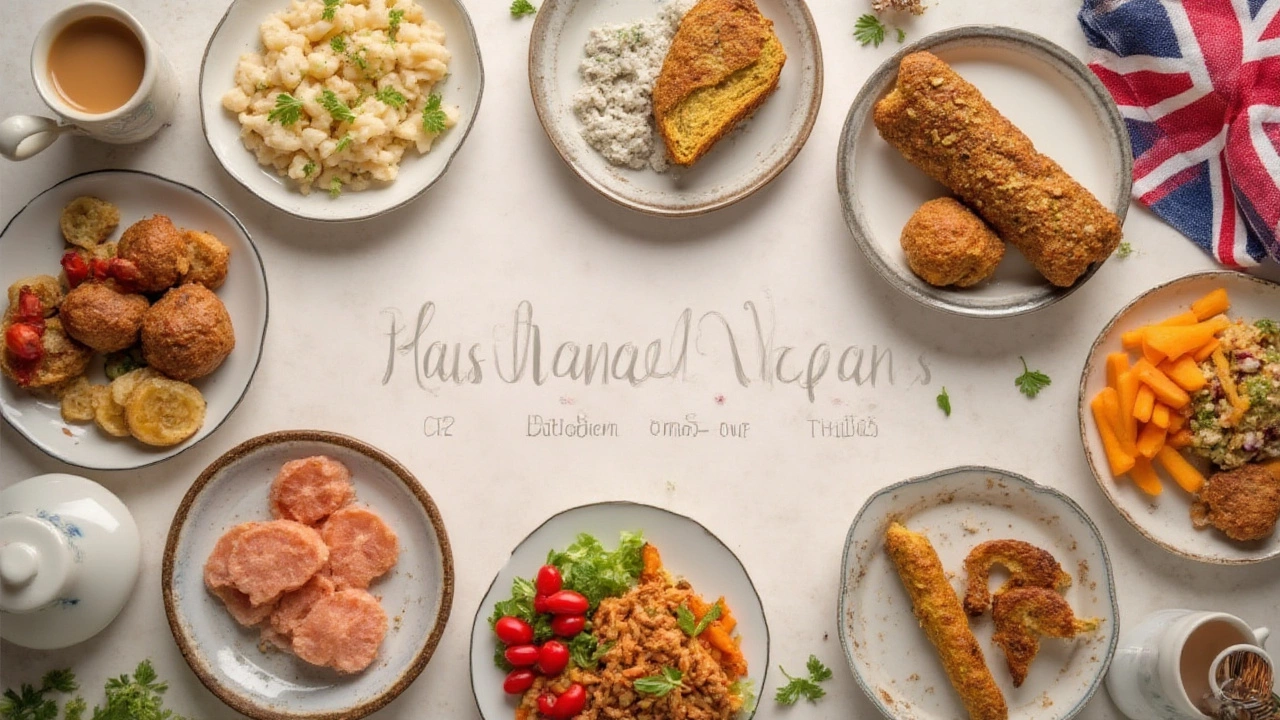
Smart Moves: How to Stay Healthy on a Vegan Diet
Here’s the good news: modern vegan nutrition isn’t all guesswork and supplements the size of horse pills. Dietitians and researchers have mapped out some killer strategies that work in real life, not just textbooks.
- Vitamin B12: Don’t mess about—supplement or eat a portion of fortified food daily (think cereals, nutritional yeast, or plant milks). Doctors lean towards a daily 25–100mcg supplement, and more if you’re over 50.
- Iron: Pair iron-rich foods (beans, lentils, tofu, pumpkin seeds) with something full of vitamin C—like peppers, oranges, or strawberries. Avoid tea and coffee at meals—they block plant iron.
- Omega-3: Get your ALA from flaxseeds, chia, walnuts, and hemp—but for **vegan deficiency**, an algae-based supplement a couple of times a week is the gold standard.
- Calcium: Opt for fortified milks and yogurts. Tofu made with calcium sulfate is a solid source. Stick with leafy greens like kale or pak choi, but don’t count on spinach or chard too much—their calcium is less absorbable.
- Vitamin D: Supplement through the winter, or anytime you’re not out in midday sun. Public Health England recommends 10mcg per day for everyone, not just vegans.
- Zinc: Sprinkle pumpkin and sunflower seeds, cashews, and chickpeas through your week. Soaking and sprouting grains or beans helps the body soak up more zinc (and iron, while you’re at it).
- Iodine: Fortified plant milks or a tiny supplement are easiest. Seaweed is another option, but you have to be careful with types and amounts—too much can be risky.
Meal planning apps, NHS resources, and tons of good vegan cookbooks now exist to help people dodge these pitfalls. Blood tests every year or so keep you honest—most GPs in the UK are clued up enough now to screen for B12, iron, or vitamin D if you ask. And if you’re pregnant, breastfeeding, or growing fast (hey, teens), you’ve absolutely got to pay extra attention: the nutritional stakes are higher, and cutting corners risks more than just a sleepy spell.
And it’s not just about popping pills—variety is your secret weapon. Mix up your lentils with black beans, swap out peanut butter for almond butter now and then, toss in some quinoa or rye bread, and don’t fear the fake meats if they’re fortified and make eating easier. Vegan diets done right are as powerful as any other—just don’t make it a puzzle you’re solving every day at 8 am.
Tips for Every Day: Eating Vegan Without Missing Out
Nobody signs up to veganism hoping to count calories or chase down missing micronutrients, so this last bit’s about making daily life easy. Use fortified foods for breakfast—think cereals, plant milks, or spreads—so you tick off B12, calcium, vitamin D, and maybe even iodine before noon. Batch cook bean stews or chili and freeze them, then add some citrus or red pepper when you reheat to get extra vitamin C. Stock your kitchen with seeds and nuts for a zinc and omega-3 boost and toss them on salads, yogurts, or porridge. Pick up a vegan multivitamin with B12, D3, and iodine, and take it with lunch—easy.
Don’t forget simple swaps: stirring pumpkin seeds into hummus, grilling tofu for sandwiches, or sautéing kale instead of just relying on lettuce. For kids and teens, shop for oat or soya drinks that have extra calcium and B12. And if you’re worried about restricted diets, chat to your GP or a registered dietitian—they have updated tools and are usually happy to check your nutrient status, especially if you mention low energy, trouble focusing, or anything else on the long list of "am I missing something?" symptoms.
Keep things fun. Explore cuisines that naturally go heavy on beans and grains—Ethiopian, Mexican, Indian, Middle Eastern—and get inspiration for new flavors and textures. If you’re out at the pub or grabbing takeaway, don’t stress if your meal isn’t perfectly balanced every single time. Just keep an eye on your basics, trust your body if it’s giving off warning signals, and lean on those modern vegan life hacks. It’s never been easier to be smart about missing nutrients, whether you’re a lifelong vegan or just dipping your toes in. So, grab some fortified oat milk, sprinkle on those pumpkin seeds, and don’t look back.
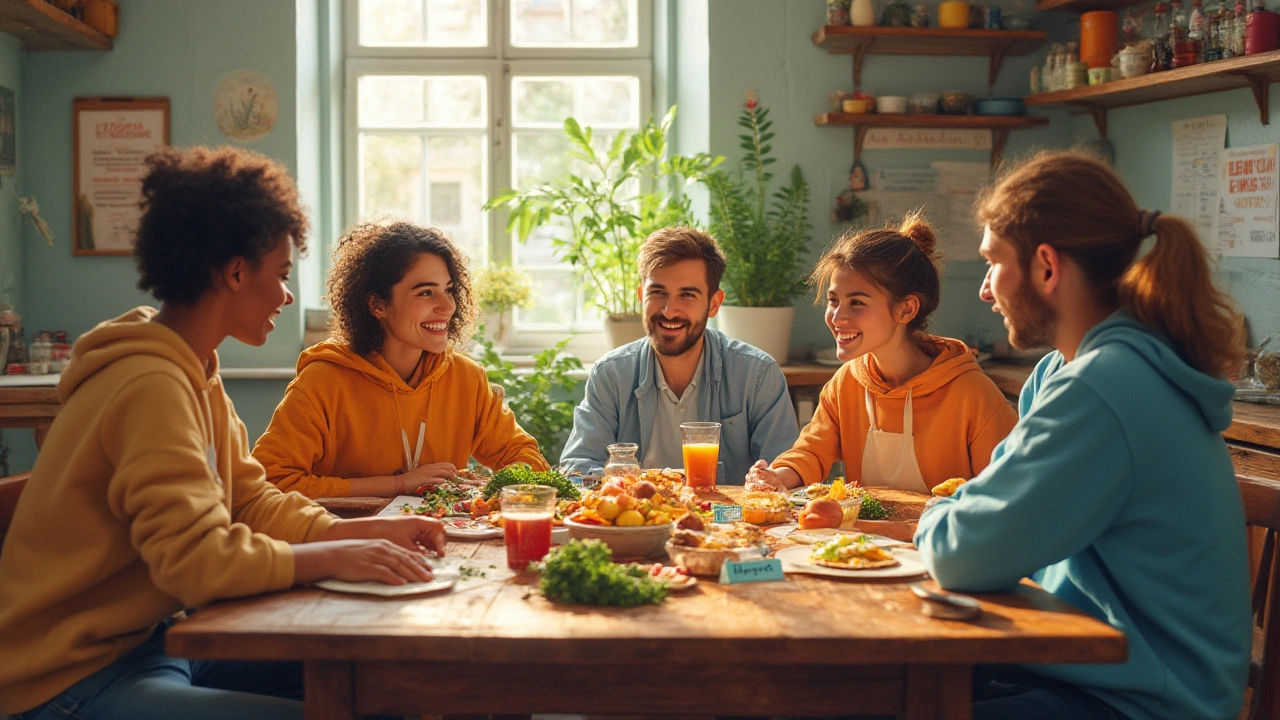

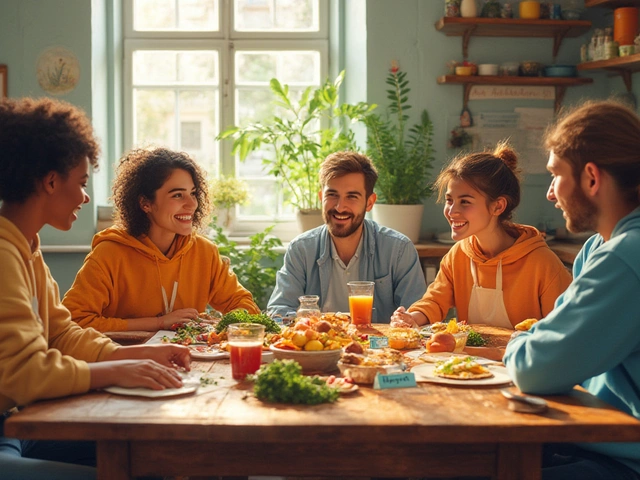
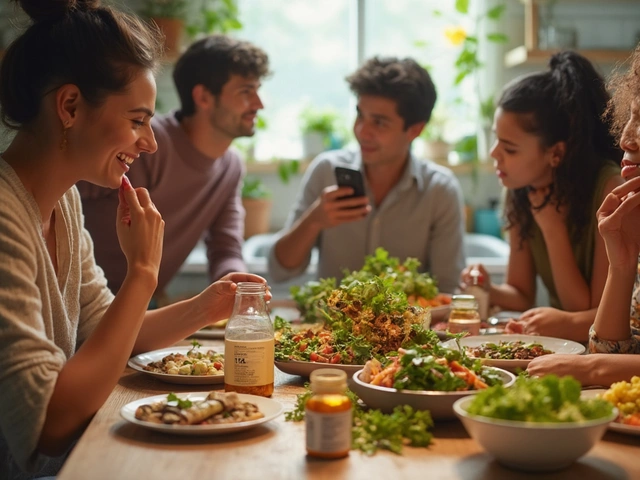
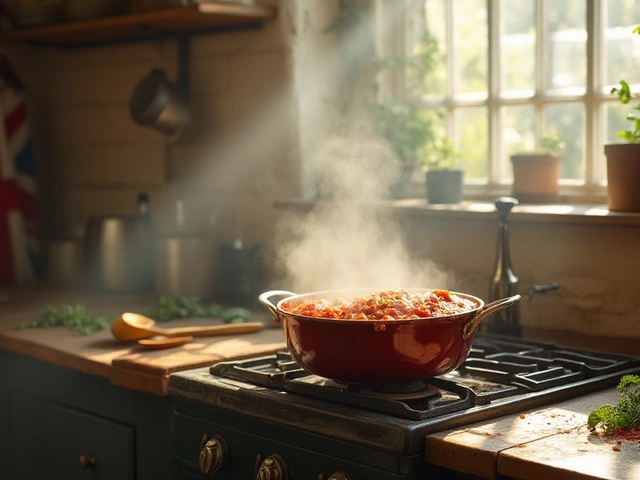
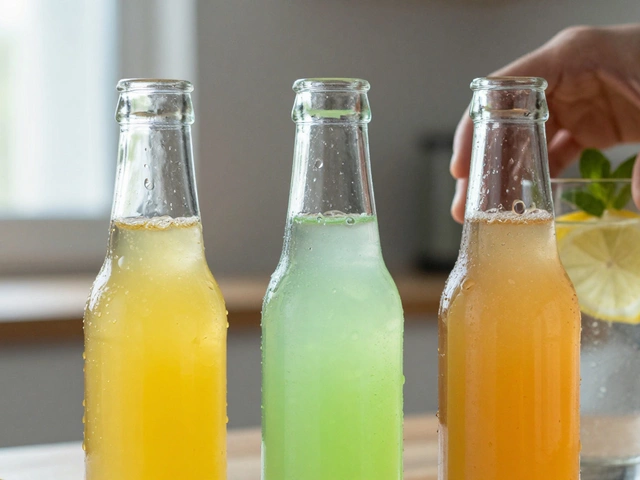
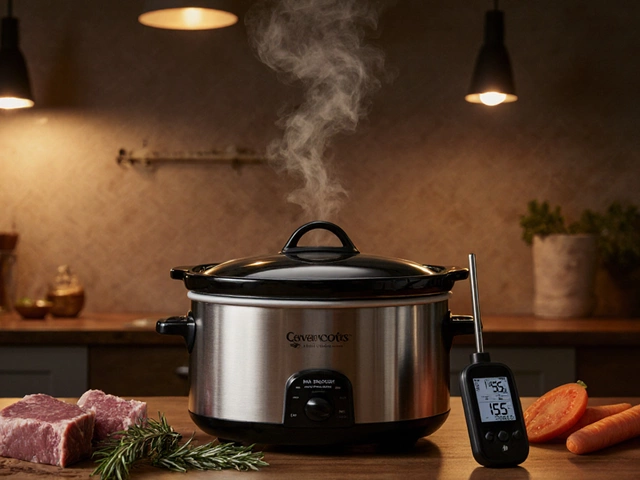
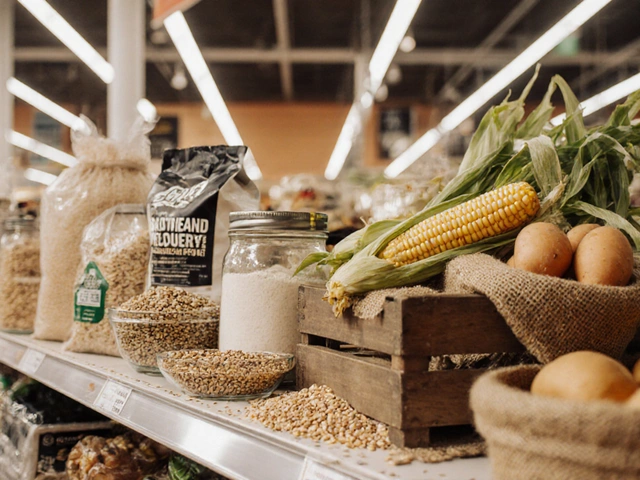

Write a comment